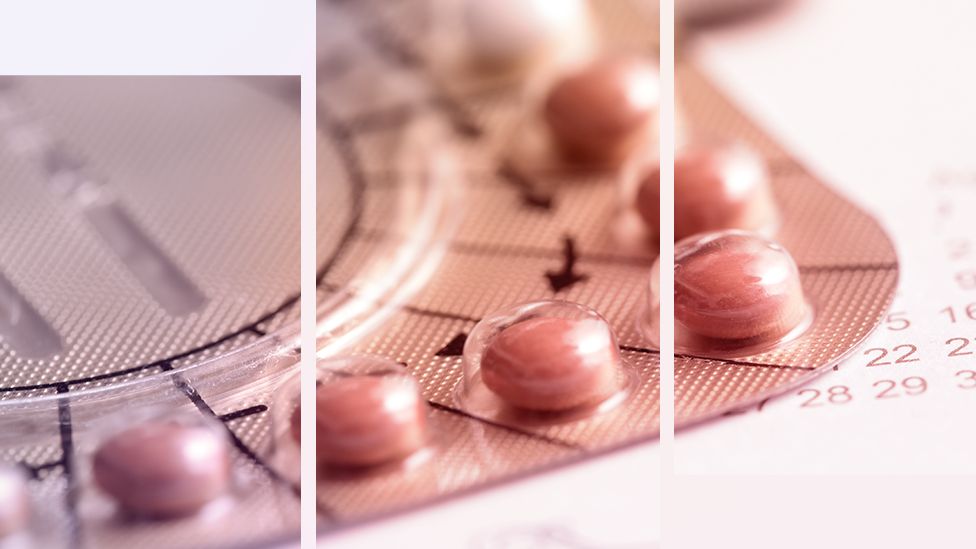ARTICLE AD BOX
By Smitha Mundasad
Health reporter
 Image source, Getty Images
Image source, Getty Images
Menopausal women are now able to pick up a form of hormone replacement therapy (HRT) without a prescription.
The tablet, sold under the brand name Gina10, will be available over the counter for some women over 50 after a discussion with a pharmacist.If you are thinking about taking it or know someone who is, here are the key things to consider.
What is HRT and what are the benefits?
As women approach the menopause, their levels of the hormone oestrogen fluctuate and decline.
Oestrogen has many roles - it helps regulate menstrual cycles, contributes to bone strength and influences the temperature of our skin. As oestrogen levels become unstable, people can experience a range of symptoms, such as hot flushes, night sweats, anxiety and joint pain.
HRT tops up the oestrogen levels in a woman's body and can help alleviate these symptoms.
Women who take it generally don't stay on it forever, just to help with the menopausal transition, and many of those say it made a big difference to their wellbeing. HRT can also have some additional benefits, such as helping to prevent bone loss and fractures. For women under 60, it may also offer some protection against heart disease.
You may hear of other potential benefits too - like protecting brain health and improving skin and hair - but so far the evidence for this is limited.
How do I take it?
About a million UK women use HRT treatment for their menopausal symptoms, according to the UK's healthcare watchdog (NICE), and the numbers taking it are rising.
It comes in many shapes and sizes, from pills and patches to gels and rings.
The core ingredient is oestrogen but one of the most common forms is combined HRT, where oestrogen is given alongside a synthetic version of the hormone progesterone. Adding progesterone helps protect the lining of the womb as oestrogen on its own can sometimes increase the chance of womb cancer.
The best type of HRT will vary from person to person and depend on symptoms and lifestyles. People are generally started on the lowest possible dose at first.
How long does it take to work?
It can take up to three months to feel the full effects, and people might need their dose and type of HRT to be tweaked or changed.
Most experts recommend starting HRT when people first get menopausal symptoms.
The evidence is mixed and limited when it comes to starting it over the age of 60, though some women experience relief from persistent symptoms.
There is no limit for how long you can take it. Some support taking HRT for many years, but the UK's Medicines and Healthcare products Regulatory Agency recommends using it at the lowest dose and for the shortest amount of time needed.
What are the risks?
The benefits of HRT are believed to outweigh the risks, despite some past negative press.
Two studies published in the early 2000s suggested that HRT had more detrimental than beneficial effects. This got wide publicity and HRT use dropped. Some are still cautious, despite mounting evidence that the treatment can be helpful.
Some types of HRT have been linked to a slightly increased risk of cancer. Combined HRT, for example, can be associated with a small increase in the risk of breast cancer.
But the British Menopause Society estimates it's less of a risk than drinking more than two units of alcohol a day or being overweight. And the risk gradually reduces after the medicine is stopped.
There is a small risk of getting a blood clot if you take HRT. This depends on other things too though, like smoking, weight and age.
There is less risk if you use HRT skin patches or a gel rather than tablets.
The risk of a blood clot is much lower than if you take the contraceptive pill or are pregnant.
What are the side effects?
Many side effects pass within three months of starting the medication.
- breast tenderness
- headaches
- nausea
- indigestion
- stomach pain
- vaginal bleeding.
It is common to gain weight as people approach the menopause, but there is no evidence HRT is behind this.
Who shouldn't have HRT?
It may not be suitable if you have:
- had breast, womb or ovarian cancer
- untreated high blood pressure
- had blood clots
- liver disease
- are pregnant.
What else can I try?
Regular exercise may help with sleeping better, can reduce hot flushes and may improve your mood.
Eating a healthy diet, cutting down on coffee, alcohol, spicy foods and stopping smoking may also help with hot flushes.
Weight-bearing exercise, such as hiking, brisk walking or playing tennis, also helps keep bones strong.
Other medication such as Tibolone - which works by mimicking the activity of oestrogen and progesterone - or certain anti-depressants may help. They can also have side effects.
You may hear about bioidentical hormones. These are not recommended by the NHS because they are not regulated and it is not clear how safe they are.
Speak to a doctor or pharmacist if you are considering complementary therapy for menopause. It may not be regulated and the ingredients cannot always be guaranteed.
Related Internet Links
The BBC is not responsible for the content of external sites.

 2 years ago
29
2 years ago
29








 English (US) ·
English (US) ·